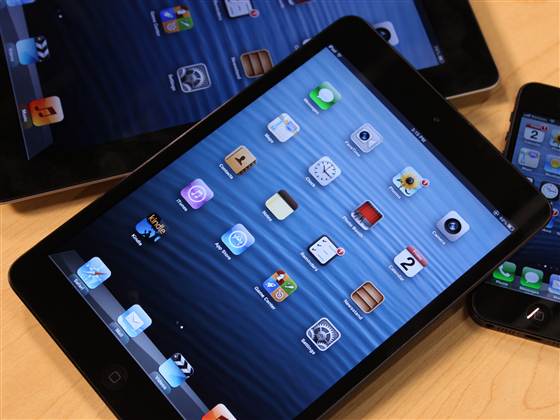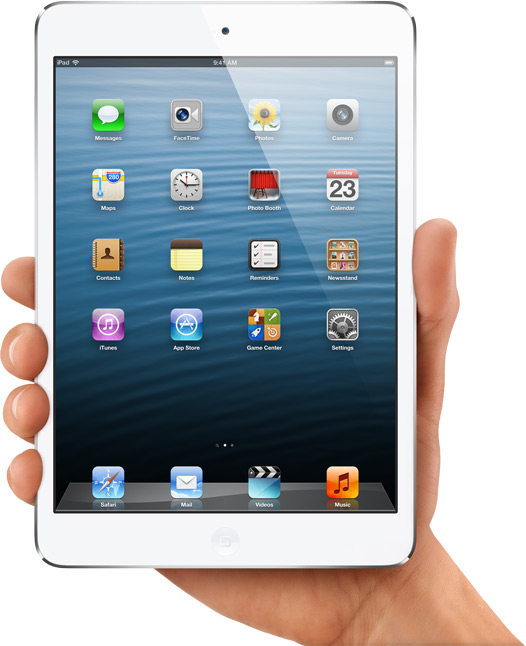Có Nên Giáo Dục Trẻ Nhỏ Bằng iPad?


Dimitri Christakist, Giám đốc trung tâm phát triển sức khoẻ và cách cư xử của trẻ em tại bệnh viện nhi đồng Seattle, Hoa kỳ cho biết “Hiện nay có rất ít các cuộc khảo cứu về sự tương tác giữa trẻ em và thiết bị điện tử này”. Bất hạnh thay, chỉ có các bậc cha mẹ mới có thể trực tiếp thử nghiệm các khảo cứu này với con của mình mà thôi. Có một ít các phụ huynh chịu khó ngồi chơi chung với các em, theo dõi và ghi nhận hiệu quả giáo dục của Ipad đối với trẻ như thế nào. Những người khác thì không làm vậy. Số phụ huynh sử dụng Ipad như một phương sách để dỗ dành cho trẻ nín khóc, cho chúng tiêu khiển trong thời gian dài ngồi xe hay trên máy bay thì nhiều hơn. Trong những lúc bận rộn, chiều con, hay cần chúng im lặng khỏi la hét, quấy rầy mình, có những phụ huynh đã cho con dùng Ipad. Bên Việt Nam, Ipad còn được dùng như một món đồ chơi hữu hiệu khiến trẻ ngồi yên chỗ cho cha mẹ đút cơm, khỏi chạy rong. Các em vừa ăn, vừa chơi trò hoạt hình chán thì có thể chuyển sang trò tô màu hoặc chơi game, tập hát hay học tiếng Anh trong Smartkids (từ điển Việt Anh có hình ảnh và âm thanh, giới thiệu về các loại hoa quả, bảng chữ cái, con vật…), Talking Friends, v.v…
Có người còn đánh giá sự thông minh của trẻ qua việc sử dụng Ipad hay Iphone. Do đó họ khuyến khích trẻ dùng Ipad vì nghĩ rằng việc tiếp cận thành thạo các kỹ thuật tân tiến, chúng sẽ học hỏi được nhiều và thông minh hơn.
Việc trẻ nhỏ vì mê chơi Ipad quá độ đã khiến các bậc cha mẹ bắt đầu lo lắng đến thị lực của các em. Một trong những điều hiển nhiên có thể thấy được là các em trở nên bớt năng động và kém giao tế. Ngồi một chỗ, ít chạy nhảy, đi ngược lại bản tính thông thường, các em sẽ bị bệnh béo phì. Tuy nhiên chuyện gì xảy ra trong óc những đứa bé khi chúng chơi Ipad vẫn còn là điều bí mật.

Trong quá trình tăng trưởng của con người, từ lúc mới sinh cho tới 3 tuổi, óc phát triển nhanh nhất và chậm lại sau đó. Căn cứ trên một khảo cứu bằng sự quan sát, Bác sĩ Christakis nói rằng “Nếu để trẻ em xem TV quá nhiều trong thời gian tăng trưởng này, sau này óc chúng sẽ gặp trở ngại trong sự chú ý”. Ông chưa làm một khảo cứu nào về hậu quả của việc trẻ nhỏ xem Ipad quá độ. Tuy nhiên ông nghi ngờ hậu quả của nó cũng tương tợ như xem TV vì màn ảnh TV và màn ảnh Ipad giống nhau mà màn ảnh Ipad lại còn nhỏ hơn. Ông thêm “Ưu điểm của Ipad là tạo ra sự tương tác giữa con người và máy móc, nhưng đó cũng có thể là nhược điểm của nó”.
Con tôi có Ipad khi vừa 4 tuổi, em dùng nó thường xuyên, hầu như mỗi cuối tuần, khi ngồi xe hay máy bay. Em chơi game và xem các chương trình TV trên Ipad nữa. Có các trò chơi dạy em toán và đánh vần mà các cuốn sách không dạy được như thế. Tôi thấy có những trò chơi thực dụng thật giá trị như trò giúp các em chơi trộn bột, nặn bông để làm bánh, hay các món tráng miệng mà các bạn không sợ nhà bếp bị dơ hay bừa bãi lung tung vì các em đổ tháo.

www.vietthuc.org
![]()
Tài liệu tham khảo:
The iPad Dilemna http://blogs.wsj.com/juggle/
What Happens When Toddlers Zone Out With an iPad
More than half of the young children in the U.S. now have access to an iPad, iPhone or similar touch-screen device. For parents, their children’s love of these devices raises a lot of questions.
Kids for years have sat too close to the television for too long or played hours of Madden on family room game players. But pediatric neuroscientists and researchers who have studied the effects of screen-time on children suggest the iPad is a different beast.
A young child will look away from a TV screen 150 times an hour, says Daniel Anderson, a professor emeritus of psychology at the University of Massachusetts. His studies over the past 30 years also showed children have trouble knowing where on a TV screen to look.
A well-designed iPad app is more engaging because often the place on the screen that a child touches is the same as where the action happens.
Ben Worthen and Michael Rich, director of the Center on Media and Child Health at Boston Children’s Hospital discuss toddlers and touch screens. Read the Recap
Many researchers hope this will help children learn. One study using an iPod Touch and sponsored by the Joan Ganz Cooney Center at Sesame Workshop found children 4- to 7-years-old improved on a vocabulary test after using an educational app called “Martha Speaks.” The 13 5-year-olds tested averaged a 27% gain. A study using a different educational app had a similar result, with 3-year-olds exhibiting a 17% gain.
 Darcy Padilla for The Wall Street Journal.Julia Campins’s son, age 2, uses his iPad in their San Francisco home.
Darcy Padilla for The Wall Street Journal.Julia Campins’s son, age 2, uses his iPad in their San Francisco home.
There is “little research on the impact of technology like this on kids,” says Dimitri Christakis, director of the Center for Child Health, Behavior and Development at Seattle Children’s Hospital.
The iPad and similar devices allow children to interact with technology at a younger age than ever before. Tiny fingers not yet old enough to manipulate a mouse or operate a videogame console can navigate a tablet touch screen.
“Unfortunately a lot of the real-life experimentation is going to be done by parents who now have young kids,” says Glenda Revelle, associate professor of human development and family sciences at the University of Arkansas.
 Darcy Padilla for The Wall Street Journal
Darcy Padilla for The Wall Street Journal
He plays with a music and animal iPad app,. The family rule: If he whines, the iPad, which his grandfather gave him, is taken away.
Some parents readily share a tablet with their children, citing the many apps marketed as educational tools. Some do not. Still other families turn to it as a tool of last resort to entertain and appease children on plane and car trips.
In the list of parental worries about tablet use: that it will make kids more sedentary and less sociable. There’s also the mystery of just what is happening in a child’s brain while using the device.
The brain develops quickest during the first few years of a child’s life. At birth, the human brain has formed about 2,500 synapses—the connections that allow the brain to pass along signals—per brain cell. That number grows to about 15,000 per brain cell by age 3. In later years, the number decreases.
The more television children watch during these formative years, Dr. Christakis says, the more likely they are to develop attention problems later on. The study was based on observation, not lab research, he says. Other studies haven’t found a correlation. While he hasn’t studied tablets and young children, he suspects the effect could be similar—or perhaps more significant. “One of the strengths of the iPad”—it is interactive—”may be the weakness,” Dr. Christakis says.
Thirty-nine percent of children ages 2- to 4-years-old and 52% of kids ages 5 to 8 have used an iPad, iPhone or similar touch-screen device to play games, watch videos or use other apps, according to a survey last year by Common Sense Media, a San Francisco-based nonprofit group. Apple AAPL -0.46%has sold more than 65 million iPads, and analysts predict that consumers will buy about 120 million tablets from Apple and other manufacturers this year.
Julia Campins’s 2-year-old son received an iPad in December from his grandfather. Mostly he uses it for Dr. Seuss books in which the app reads the story, and games about animals.
Ms. Campins, who lives in San Francisco, says it keeps her son calm and entertained on flights. At home, Ms. Campins, a 31-year-old lawyer, and her husband, Nick Campins, only give him the iPad when they need to get things done around the house.
The family rule: If her son whines, the iPad goes away. “When we feel ourselves using it too much, or whenever he starts whining for it, we take that as a sign and cut back.”
About a year later, my wife and I bought an iPad, loaded it with word and puzzle games and let our son use it on a more regular basis. His knowledge of words seemed to pick up immediately. We also noticed things that worried us. He would go into a trance-like state when he used the iPad. He wouldn’t respond when we called his name.
“He’s concentrating,” says Sandra Calvert, a professor at Georgetown University. It’s physiologically the same thing he does while deeply immersed in, say, Legos. Psychologists call it “flow experience.”
There is a subtle difference: The child decides when a building is finished; an app determines when the task is completed correctly. Researchers say it’s unclear whether this difference has any impact on a child.
Soon, getting our son to put down the iPad became a nightly battle. “It gives him a dopamine squirt,” says Michael Rich, director of the Center on Media and Child Health at Children’s Hospital in Boston, referring to the brain chemical often associated with pleasure.
Many apps for kids are designed to stimulate dopamine releases—hence encouraging a child to keep playing—by offering rewards or exciting visuals at unpredictable times.
My wife and I stopped letting our son use the iPad. Now he rarely asks for it. He is 4 and his friends aren’t talking about cool iPad games, so he doesn’t feel he’s missing out.
The experts interviewed were mixed on whether we did the right thing. About half say they would have taken away the iPad if their kid exhibited similar behavior—asking for it constantly, whining. The rest say we overreacted.
Ben Worthen










































